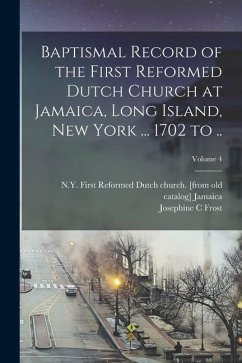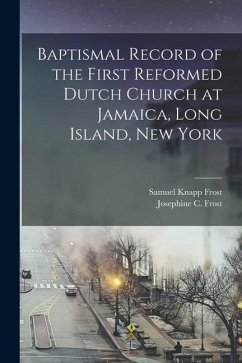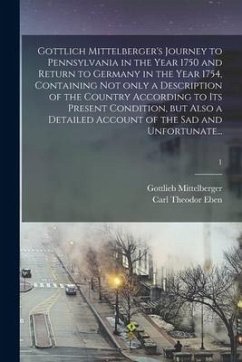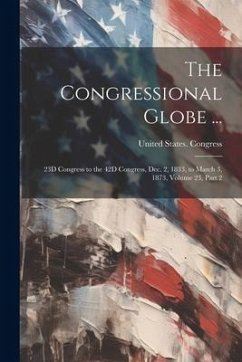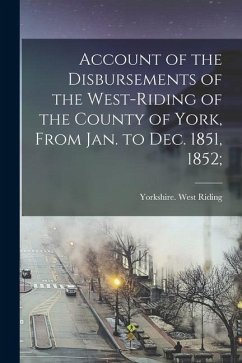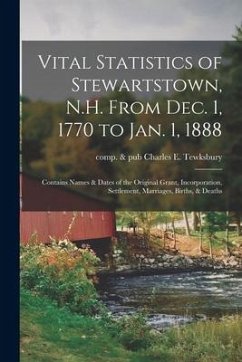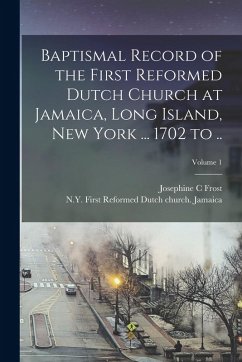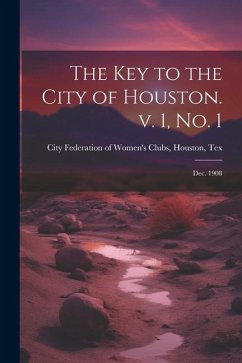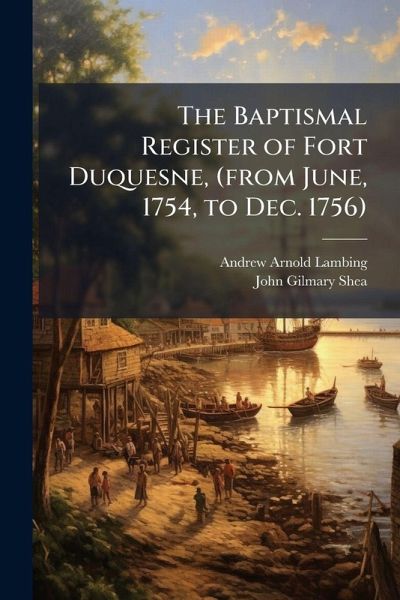
The Baptismal Register of Fort Duquesne, (from June, 1754, to Dec. 1756)
Versandkostenfrei!
Versandfertig in über 4 Wochen
17,99 €
inkl. MwSt.
Weitere Ausgaben:

PAYBACK Punkte
9 °P sammeln!
"The Baptismal Register of Fort Duquesne, (from June, 1754, to Dec. 1756)" offers a rare glimpse into the religious life of a pivotal French military outpost in early America. Compiled and translated by Andrew Arnold Lambing and John Gilmary Shea, this meticulously documented register provides invaluable primary source material for historians and genealogists alike. Containing records of baptisms performed during a critical period of colonial history, this volume sheds light on the individuals and families connected to Fort Duquesne. Researchers will find details of births, names of parents an...
"The Baptismal Register of Fort Duquesne, (from June, 1754, to Dec. 1756)" offers a rare glimpse into the religious life of a pivotal French military outpost in early America. Compiled and translated by Andrew Arnold Lambing and John Gilmary Shea, this meticulously documented register provides invaluable primary source material for historians and genealogists alike. Containing records of baptisms performed during a critical period of colonial history, this volume sheds light on the individuals and families connected to Fort Duquesne. Researchers will find details of births, names of parents and godparents, and other pertinent information that illuminates the social and religious context of the time. As a historical document, it remains an essential resource for understanding the early Catholic presence in the Ohio Valley and the broader dynamics of French colonization. This work has been selected by scholars as being culturally important, and is part of the knowledge base of civilization as we know it. This work was reproduced from the original artifact, and remains as true to the original work as possible. Therefore, you will see the original copyright references, library stamps (as most of these works have been housed in our most important libraries around the world), and other notations in the work. This work is in the public domain in the United States of America, and possibly other nations. Within the United States, you may freely copy and distribute this work, as no entity (individual or corporate) has a copyright on the body of the work. As a reproduction of a historical artifact, this work may contain missing or blurred pages, poor pictures, errant marks, etc. Scholars believe, and we concur, that this work is important enough to be preserved, reproduced, and made generally available to the public. We appreciate your support of the preservation process, and thank you for being an important part of keeping this knowledge alive and relevant.



![Peace on Honorable Terms to America [microform]: Signed by Our Commissioners at Ghent, Dec. 24, 1814, --Prince Regent, Dec. 28, --ratified by the Pres Cover Peace on Honorable Terms to America [microform]: Signed by Our Commissioners at Ghent, Dec. 24, 1814, --Prince Regent, Dec. 28, --ratified by the Pres](https://bilder.buecher.de/produkte/65/65625/65625236n.jpg)
